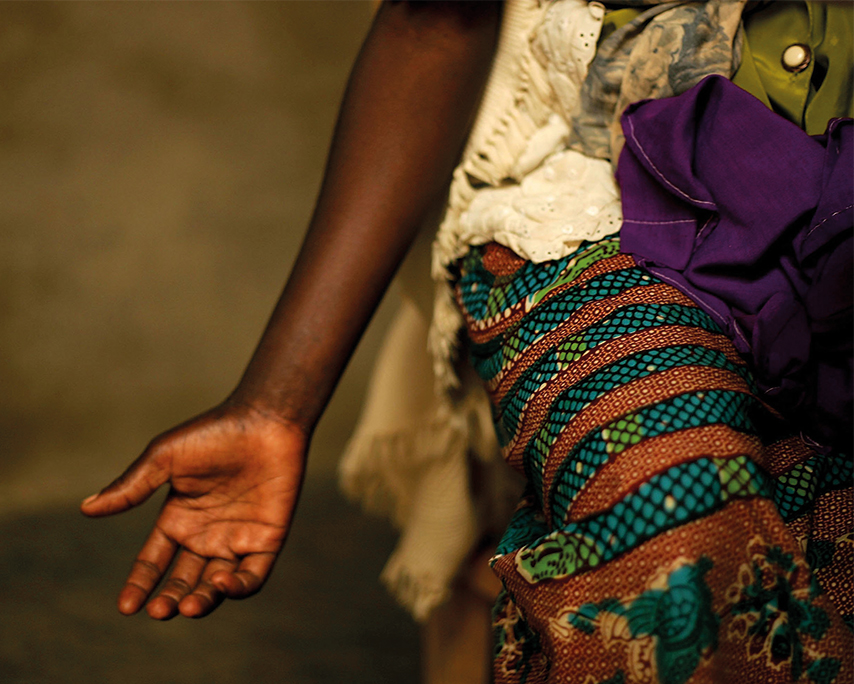International day for the Elimination of Sexual Violence in Conflict
The complexities of CRSV documentation in African context
Conflict-related sexual violence (CRSV) is a harrowing reality in many parts of Africa. Its devastating impact reaches beyond physical harm, inflicting deep psychological scars and fracturing communities. To truly understand and address this crisis, we must examine it through multiple lenses: legal, humanitarian, cultural, political, and survivor-centred. Only by embracing this complexity can we advocate for documentation practices that honour the dignity and realities of those affected.
In pursuit of justice and accountability
At the forefront of international efforts to combat CRSV is the legal framework. Courts such as the International Criminal Court (ICC) rely on meticulous documentation of incidents to prosecute perpetrators and deliver justice. Legal documentation demands precision: witness testimonies, forensic evidence, and detailed incident reports are necessary to build credible cases.
However, this process can be invasive and re-traumatising if not conducted with care. The pressure to gather admissible evidence may sometimes overlook the emotional and psychological toll on survivors. We recognise the crucial role of legal documentation, but we advocate that it must be balanced with sensitivity, ensuring that survivors are supported and their agency is respected throughout.
Centring on survivor care
Humanitarian agencies and health providers approach CRSV documentation with a focus on the immediate needs of survivors. Medical records, psychosocial assessments, and case management data form an essential part of understanding the scope and impact of violence.
This lens emphasises confidentiality, informed consent, and survivor-centred care. Effective documentation in humanitarian settings is not only about data collection but also about safeguarding privacy and using information to provide healing and protection. Yet, the challenges remain. Health workers must navigate the tension between documenting enough detail for effective intervention and protecting survivors from further harm.
Respecting traditions and overcoming stigma
Cultural norms and community dynamics significantly influence how CRSV is experienced and reported. In many African societies, talking openly about sexual violence remains taboo, and survivors face stigma, shame, or even rejection.
Acknowledging this reality means that documentation cannot be a one-size-fits-all exercise. It requires culturally sensitive approaches that engage trusted community actors and create safe spaces for survivors. Community-based reporting mechanisms, local language translation, and awareness-raising efforts help ensure that survivors feel seen and heard without fear of ostracism.
Navigating governance and power dynamics
Governments and policymakers, through national action plans, security sector reforms, and data collection systems, reflect the political will to address the issue.
However, political agendas can sometimes skew reporting. Data might be underreported to preserve a country’s image or overemphasised in conflict zones to attract donor funding. Effective advocacy calls for transparent, unbiased documentation processes that empower governments to take real action without politicising survivors’ stories.
Upholding dignity and agency
Above all, the voices and choices of survivors must guide documentation efforts. Increasingly, best practices emphasise survivor participation in deciding how their experiences are recorded and shared. Ethical documentation means prioritising consent, confidentiality, and the psychological well-being of survivors.
Documentation should not only serve as a means of external accountability but also contribute to healing, empowerment, and the restoration of dignity. When survivors reclaim their narratives on their own terms, it challenges the dehumanisation that conflict-related sexual violence entails.
Advocating for documentation that honours complex realities
As publishers committed to amplifying African voices, we believe documentation is more than data gathering. It is a powerful act of witnessing, justice, and healing. To truly confront CRSV, documentation must reflect the multiple realities survivors face. Only by honouring these diverse perspectives can documentation become a tool that not only exposes violence but also fosters justice, recovery, and lasting change.
In the face of one of Africa’s gravest crises, our commitment is to elevate voices, safeguard dignity, and advocate for documentation that respects the full humanity of survivors.



